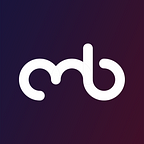How the MBTI Tool Is Used in Clinical Practice
John Hackston interviews Dr. Aqualas Gordon of University of Central Missouri
Dr. Aqualas Gordon, a professor of psychology at Maryville College, earned his Ph.D. in Counseling Psychology at the University of Texas-Austin, and teaches courses on General Psychology, sports psychology and other subjects. He also happens to be an expert on the Myers-Briggs Type Indicator® (MBTI®) instrument.
Our own John Hackston recently had a chance to catch up with Dr. Gordon about how he uses the MBTI in both his clinical practice, and in the classroom. Here are a few excerpts from the conversation (watch the video here):
JH: Aside from research, are there any other areas where you use the type approach?
AG: I do use it in my clinical practice. Sometimes I’m just trying to understand how a person is thinking and use that to help them communicate, or to help them frame something that they’re having a problem with. I have also given it in a formal capacity, in terms of giving someone a test battery to gain an overall picture of what’s going on for them.
When you’re giving test batteries you’re often telling a client something negative — you’ve got high depression scores, you’ve got high anxiety scores, and so forth. But it’s also nice to mix into that feedback things like, ‘well let’s just talk about how you see the world, and if this personality type fits for you, if this helps you see’. And so I like to build those things into kind of a feedback session — not just ‘here’s the stuff I’m seeing you struggle with’, but ‘here’s the stuff that maybe you’re doing well, here’s some stuff that maybe you can think about as a way to help you understand what’s going on in your life’.
So I use the MBTI in those clinical ways…and then as I say kind of ‘unofficially’, with my friends (laughs).
JH: I know you actually talk about the type approach to your students as well. I have to admit that I did look at some of your YouTube lectures before I interviewed you.
AG: I do use it in class a lot.
JH: How do they respond?
AG: They love it. It’s just so easy to understand and relates well for anyone who wants to find out about themselves or find out about someone they know. It’s just a nice, really accessible frame for folks to do that with. So students love it. I started doing this thing where I asked them to take the Myers-Briggs before the first day of class. The first day they come in I’ll talk about the types…it’s just a way to build a rapport in the class.
Next semester I’m teaching a personality course. We’re going to talk about Myers-Briggs and Jung a lot. Students really love it. I use it in fun ways.
I was teaching a sports psychology class the last two semesters, and we talked about how personality might affect motivation and coaching and teamwork, and what types of folks are going to be better at certain things, as well as what types of folks are going to have struggles and what kinds of struggles might they have under certain conditions.
Myers-Briggs personality type has got a lot of applicability, and again that’s just one of the cool things about it.
Stay tuned for more insight from Dr. Aqualas Gordon and John Hackston in upcoming articles.
